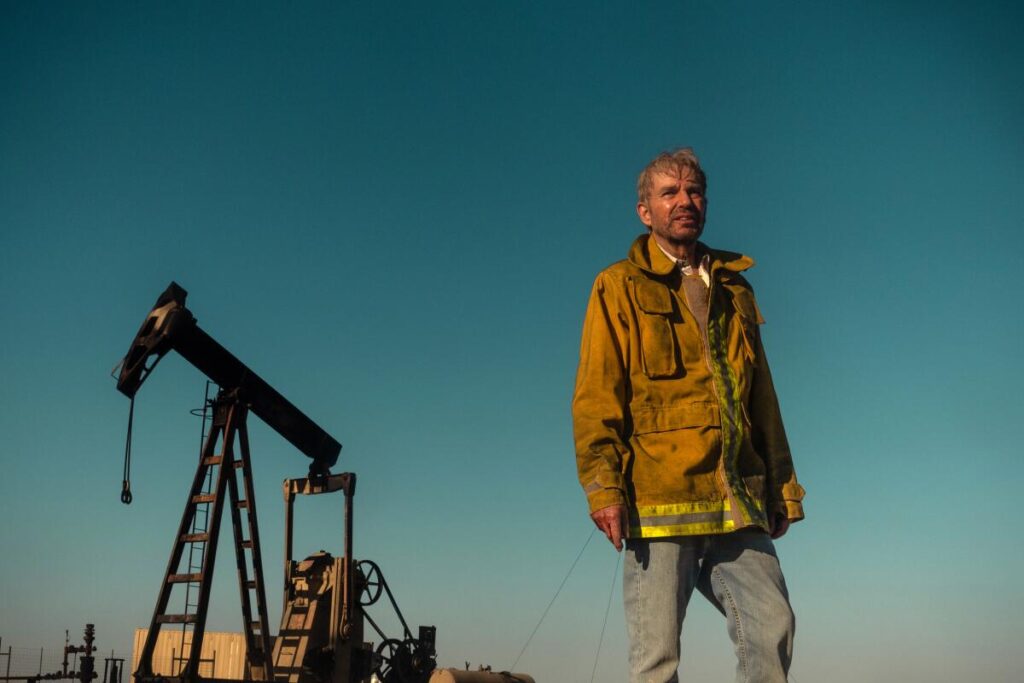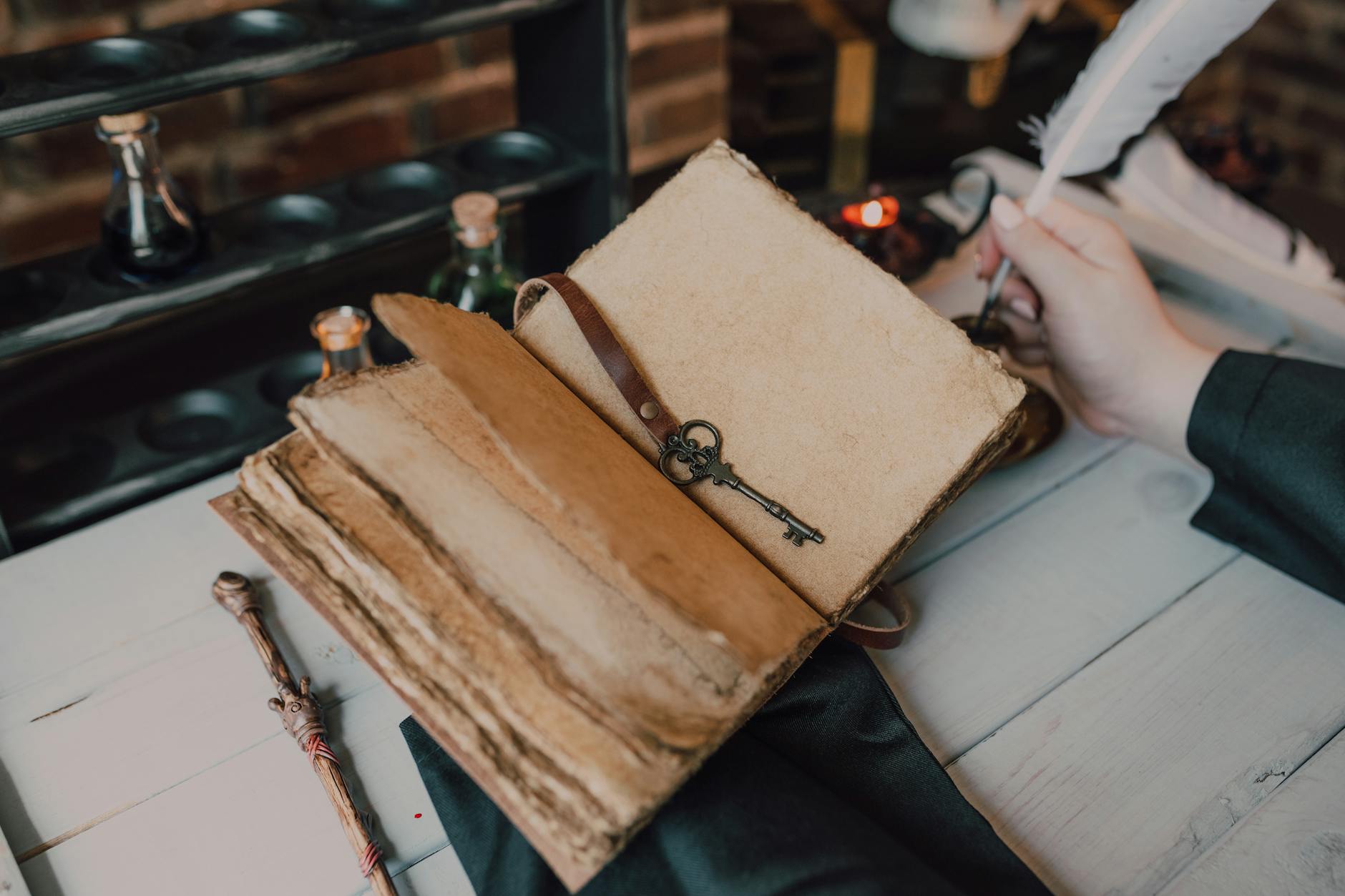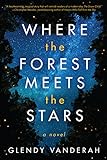
Teaching is one of the most rewarding careers—but let’s be honest, it’s also one of the hardest. Every year brings new challenges, shifting priorities, and unexpected hurdles. As we step into 2025, the demands on teachers continue to evolve, and staying ahead means constantly learning, adapting, and growing. The best teachers know this: they don’t rely on their instincts or experience; they actively seek wisdom, strategies, and inspiration to keep improving.
- Hardcover Book
- Schwartz, Kyle (Author)
- English (Publication Language)
- 272 Pages – 07/12/2016 (Publication Date) – Balance (Publisher)
- Oakley PhD, Barbara (Author)
- English (Publication Language)
- 336 Pages – 06/15/2021 (Publication Date) – Tarcher (Publisher)
- Franklin, MS (Author)
- English (Publication Language)
- 184 Pages – 09/08/2025 (Publication Date) – Newman Springs (Publisher)
- Whitaker, Todd (Author)
- English (Publication Language)
- 132 Pages – 04/22/2020 (Publication Date) – Routledge (Publisher)
- Smith, Dominique (Author)
- English (Publication Language)
- 170 Pages – 08/17/2015 (Publication Date) – ASCD (Publisher)
That’s why we’ve curated this list of transformative books for educators navigating the year ahead. These aren’t just any books—they’re the ones that the most dedicated, forward-thinking teachers will be reading in 2025. Whether you’re a first-year teacher trying to find your footing or a veteran looking for fresh insights, this collection is packed with ideas to help you grow professionally, reconnect with your purpose, and make a lasting impact on your students. Are you ready to join the ranks of the best teachers in 2025? Let’s dive in.
Slow Productivity: The Lost Art of Accomplishment Without Burnout by Cal Newport
Teaching is often described as a marathon, but it feels more like a frantic sprint for many. New teachers, especially, are inundated with to-do lists that never end, from lesson planning to grading to navigating the demands of administration. In Slow Productivity, Cal Newport challenges the prevailing culture of busyness and makes the case for slowing down. He argues that doing fewer things—but doing them with care and excellence—not only leads to better outcomes but also prevents burnout, a common hazard in education. Newport’s philosophy is a balm for teachers trying to find their footing in the whirlwind of their early years.
Drawing on historical examples and his life, Newport shares practical strategies for living and working with intention. He encourages teachers to embrace consistency over intensity and to make space for rest and reflection. In the classroom, this might mean prioritizing the quality of lessons over the quantity of assignments. For educators at any stage of their careers, this book offers a roadmap to sustainable success, reminding them that it’s possible to thrive without sacrificing their well-being.
- Hardcover Book
- Newport, Cal (Author)
- English (Publication Language)
- 256 Pages – 03/05/2024 (Publication Date) – Portfolio (Publisher)
The Choice: Embrace the Possible by Dr. Edith Eva Eger
In a profession where challenges seem constant, The Choice by Dr. Edith Eva Eger offers a perspective that is both humbling and inspiring. A Holocaust survivor, Dr. Eger endured unimaginable suffering but emerged with an unshakable belief in the power of choice. For teachers navigating difficult times—whether due to systemic pressures, classroom struggles, or personal challenges—her story is a poignant reminder that even in the darkest circumstances, we can choose how we respond. Her journey exemplifies resilience, hope, and the incredible capacity for finding meaning in hardship.
Through powerful storytelling, Dr. Eger weaves lessons from her experiences with insights into how to live a meaningful life. For educators, this book is a call to reflect on their own choices—how they respond to stress, show up for students, and navigate the complexities of teaching in troubled times. It’s not just a memoir; it’s a guide to enduring and thriving, no matter the obstacles.
- Eger, Dr. Edith Eva (Author)
- English (Publication Language)
- 320 Pages – 09/04/2018 (Publication Date) – Scribner (Publisher)
Montaigne by Stefan Zweig
Teaching can often feel like a whirlwind, with constant demands pulling you in every direction. In such moments, the story of Michel de Montaigne, as told by Stefan Zweig, offers a profoundly relevant message: sometimes, the best response to chaos is to turn inward and cultivate self-awareness. Montaigne lived through a time of upheaval in 16th-century France, but instead of being consumed by the turmoil, he retreated to study. Zweig’s brilliant biography captures Montaigne’s essence, portraying him as a philosopher who found peace and clarity through reflection—a practice educators can adopt to maintain their balance.
For new teachers, Montaigne’s journey reminds them that it’s okay to pause and take stock. Amid the noise of politics, curriculum changes, and classroom challenges, there’s immense value in stepping back to reconnect with your core purpose. Zweig’s portrayal of Montaigne provides historical insight and a practical guide for educators looking to master themselves and bring that mastery into their classrooms.
- Audible Audiobook
- Stefan Zweig (Author) – Tyler Boss (Narrator)
- English (Publication Language)
- 03/30/2023 (Publication Date) – Aureon Verlag (Publisher)
The Years of Lyndon Johnson by Robert A. Caro
Teaching, like politics, is often about navigating power dynamics, and there’s no better guide to understanding power than Robert A. Caro’s epic biography series on Lyndon Johnson. Across four volumes, Caro meticulously unpacks Johnson’s life, revealing how power is accumulated, wielded, and, ultimately, how it shapes the world around us. These lessons are invaluable for teachers—classrooms, schools, and education systems are all microcosms of power, and understanding these dynamics can help you better advocate for your students and yourself.
Caro’s work also highlights the duality of power: it can corrupt and reveal character and purpose. Teachers often find themselves in positions of influence, shaping young minds and impacting lives. This series challenges educators to reflect on their use of power in the classroom and beyond. Whether you’re teaching history or want to understand the world more deeply, Caro’s biography offers profound lessons on ambition, justice, and the human condition.
- Hardcover Book
- Caro, Robert A. (Author)
- English (Publication Language)
- 04/09/2013 (Publication Date) – Knopf (Publisher)
A Calendar of Wisdom by Leo Tolstoy
Finding moments of peace and reflection can feel impossible in a teacher’s busy, unpredictable life. Enter A Calendar of Wisdom by Leo Tolstoy, a collection of daily reflections that draws from the greatest thinkers in history. This book is more than a devotional; it’s a companion for the year, offering teachers a steady stream of wisdom to help navigate the highs and lows of the profession. Tolstoy believed in the transformative power of ideas, and his curated thoughts provided clarity, inspiration, and grounding for even the most chaotic days.
For educators, this book reminds them of the enduring principles that transcend time: kindness, patience, and the pursuit of knowledge. It’s a way to reconnect with the deeper meaning of teaching and find strength in the universal truths shared by philosophers, poets, and spiritual leaders. Whether read in the morning to set the tone for the day or at night to reflect on challenges, this book is a timeless resource for teachers seeking balance and perspective.
- Hardcover Book
- Tolstoy, Leo (Author)
- English (Publication Language)
- 384 Pages – 10/14/1997 (Publication Date) – Scribner (Publisher)
Of Boys and Men: Why the Modern Male Is Struggling, Why It Matters, and What to Do About It by Richard Reeves
As a teacher, you’ve likely encountered students—particularly boys—who seem to be struggling more than ever. In Of Boys and Men, Richard Reeves delves into the societal shifts that have left many young males feeling adrift. Aside from engaging in culture wars, Reeves offers a compassionate and evidence-based analysis of how to support boys’ development better. This book is especially valuable for teachers who want to foster a classroom environment where all students can thrive.
Reeves’ insights are both sobering and actionable. He explores how traditional markers of success for boys—academic achievement, emotional resilience, and a sense of purpose—are increasingly out of reach for many. Teachers play a pivotal role in helping boys develop these qualities, and Reeves provides strategies to guide this work. Educators can create more inclusive and supportive classrooms that uplift all students by understanding boys’ unique challenges.
- Hardcover Book
- Reeves, Richard V. (Author)
- English (Publication Language)
- 256 Pages – 11/27/2022 (Publication Date) – Brookings Institution Press (Publisher)
Bright Shining: How Grace Changes Everything by Julia Baird
Grace is rarely discussed in professional development sessions, yet it’s a cornerstone of good teaching. In Bright Shining, Julia Baird explores the transformative power of grace—not just as a personal virtue but as a force that can change relationships, communities, and classrooms. For teachers, grace might look like patience with a difficult student, forgiveness for a colleague, or compassion for yourself on a hard day.
Baird’s writing is a gentle yet powerful reminder that grace is not about weakness or passivity but strength and resilience. As we emerge from years of disruption and uncertainty, this book encourages educators to lead with empathy and kindness, even when the world feels harsh. It’s a timely and uplifting read for teachers navigating the challenges of 2025.
- Hardcover Book
- Baird, Julia (Author)
- English (Publication Language)
- 320 Pages – 10/08/2024 (Publication Date) – HarperOne (Publisher)
The Children by David Halberstam
The Children by David Halberstam is an evocative portrayal of young activists at the forefront of the Civil Rights Movement—a testament to the power of youth in shaping history. For teachers, especially those guiding students through their formative years, this book offers a profound lesson in courage, resilience, and the transformative power of collective action. Halberstam’s meticulous storytelling transports readers to sit-ins, freedom rides, and the pivotal moments that define a generation. In today’s classroom, where issues of equity and justice remain pressing, this book serves as both an educational tool and an inspiration to encourage students to engage thoughtfully with their world.
Halberstam doesn’t just recount events; he humanizes the young people who risked everything for a cause they believed in. For teachers, this is a reminder of the incredible potential of every student. The Children challenges educators to teach history and empower students to understand their role in shaping it. It’s a call to recognize each young person’s capacity for change and a guide for helping them realize that potential.
- Halberstam, David (Author)
- English (Publication Language)
- 783 Pages – 03/30/1999 (Publication Date) – Fawcett Books (Publisher)
Parting the Waters: America in the King Years 1954-63 by Taylor Branch
Taylor Branch’s Parting the Waters is more than just a biography of Martin Luther King Jr.; it’s a detailed chronicle of the American Civil Rights Movement and a powerful narrative about leadership, moral courage, and social justice. For teachers, this book is an invaluable resource that deepens historical understanding and provides insight into the enduring struggle for equality—lessons vital in today’s classrooms. Branch’s portrayal of King and the movement is a model for educators seeking to inspire their students to advocate for justice and change.
Reading this book, teachers will gain a deeper appreciation for the complexities of social movements and the importance of individual contributions within them. It reminds them that education is about imparting knowledge and fostering critical thinking and ethical awareness. Branch’s meticulous research and compelling storytelling make this trilogy an essential read for educators who wish to bring history alive for their students, showing them that real change is possible through dedication and perseverance.
- Used Book in Good Condition
- Branch, Taylor (Author)
- English (Publication Language)
- 1088 Pages – 11/15/1989 (Publication Date) – Simon & Schuster (Publisher)
Same as Ever: A Guide to What Never Changes by Morgan Housel
Morgan Housel’s Same as Ever offers a refreshing perspective by focusing on the constants of human nature and behavior in a world obsessed with novelty and rapid change. This book is a powerful reminder for teachers that while educational fads come and go, certain truths about teaching and learning remain steadfast. Housel’s exploration of these enduring principles is a guide for navigating the uncertainties of modern education with a steady hand and clear vision.
Housel’s anecdotes and reflections encourage educators to focus on timeless virtues like patience, perseverance, and empathy, which remain relevant regardless of shifting educational landscapes. By grounding their practice in these enduring truths, teachers can build resilient and adaptable classroom environments that withstand change pressures. This book is a valuable resource for educators looking to root their teaching philosophy in what truly matters.
- Hardcover Book
- Housel, Morgan (Author)
- English (Publication Language)
- 240 Pages – 11/07/2023 (Publication Date) – Portfolio (Publisher)
Atomic Habits by James Clear
James Clear’s Atomic Habits is a masterclass in personal and professional transformation through small, consistent actions. For teachers, incrementally building habits can be a game-changer—establishing a morning routine that sets the tone for the day, creating consistent grading practices, or developing classroom management strategies. Clear’s emphasis on starting small makes this approach accessible, even amidst the school year’s busyness.
Clear’s framework benefits teachers personally and can be translated into classroom practice. Educators can use the principles from this book to help students set and achieve academic goals, build study habits, and foster a growth mindset. Atomic Habits underscores that lasting change doesn’t come from grand gestures but from the quiet power of daily, deliberate action—a lesson as relevant in teaching as it is in life.
- Hardcover Book
- Clear, James (Author)
- English (Publication Language)
- 320 Pages – 10/16/2018 (Publication Date) – Avery (Publisher)
Meditations by Marcus Aurelius
Marcus Aurelius’ Meditations offer timeless wisdom, making them a must-read for educators facing the myriad challenges of modern teaching. This collection of personal reflections provides profound insights into resilience, discipline, and self-control—traits that are essential for teachers navigating the complexities of today’s educational landscape. In a chaotic world, Aurelius’ Stoic philosophy can be a steadying force, helping educators maintain their composure and focus.
For new teachers, Meditations is a guide to inner strength and clarity. It encourages educators to concentrate on what they can control—preparation, attitude, and effort—while letting go of what they cannot. Whether dealing with difficult students, administrative challenges, or broader systemic issues, this book provides a framework for approaching each day calmly and purposefully. It’s a resource to return to repeatedly, offering new insights each time based on where you are in your teaching journey.
- New
- Mint Condition
- Dispatch same day for order received before 12 noon
- Guaranteed packaging
- No quibbles returns
It Can’t Happen Here by Sinclair Lewis
Sinclair Lewis’ It Can’t Happen Here is a chilling reminder of how fragile democracy can be—a narrative that resonates deeply in today’s political climate. For educators, this novel is more than just a story; it’s a powerful teaching tool that prompts critical discussions about governance, power, and civic responsibility. In a time when political literacy is more important than ever, this book challenges teachers and students alike to engage thoughtfully with the world around them.
Reading this novel with your students can open dialogues about the importance of vigilance, critical thinking, and the role of education in preserving democratic values. It’s a stark portrayal of how complacency can lead to the erosion of freedoms, making it a compelling read for teachers aiming to foster informed, engaged citizens. Lewis’ work is both a cautionary tale and a call to action—a reminder that education is a cornerstone of democracy.
- Lewis, Sinclair (Author)
- English (Publication Language)
- 400 Pages – 10/04/2005 (Publication Date) – Berkley (Publisher)
The Expanding Circle by Peter Singer
Peter Singer’s The Expanding Circle challenges readers to widen their scope of empathy and moral concern—a principle that resonates deeply with the teaching ethos. This book explores ethical responsibility and interconnectedness for educators, offering a philosophical framework for fostering a compassionate and inclusive classroom environment. Singer’s argument that our moral circle can and should expand aligns perfectly with the educational goal of nurturing student empathy.
Teachers can draw from Singer’s insights to cultivate a classroom culture that values diversity, inclusivity, and global awareness. By encouraging students to think beyond their immediate circles, educators can help them develop a broader understanding of their impact on the world. This book is valuable for teachers committed to shaping socially responsible and ethically aware citizens.
- Amazon Kindle Edition
- Singer, Peter (Author)
- English (Publication Language)
- 227 Pages – 04/18/2011 (Publication Date) – Princeton University Press (Publisher)
Bushido: The Samurai Code of Japan by Inazō Nitobe
Inazō Nitobe’s Bushido introduces readers to the ancient code of the samurai, offering timeless lessons in integrity, duty, and perseverance—values essential in the teaching profession. This book provides educators a unique cultural perspective on leadership and character, encouraging them to reflect on their practices and the virtues they wish to instill in their students. Nitobe’s exploration of Bushido is not merely about historical curiosity; it’s about applying those principles to modern challenges.
Teachers can find inspiration in the samurai’s commitment to lifelong learning and self-discipline—traits that are just as relevant in the classroom as they were on the battlefield. By embracing the samurai’s dedication to honor and ethical behavior, educators can model and teach these values, fostering a culture of respect and responsibility. Nitobe’s work serves as a guide for educators striving to build not just knowledgeable students but honorable individuals.
- Hardcover Book
- Nitobe, Inazo (Author)
- English (Publication Language)
- 192 Pages – 03/05/2019 (Publication Date) – Tuttle Publishing (Publisher)
The 48 Laws of Power by Robert Greene
Teaching is not just about imparting knowledge; it’s about navigating the complexities of relationships, institutions, and influence. Robert Greene’s The 48 Laws of Power provides a fascinating lens through which to understand power dynamics, making it an invaluable resource for educators seeking to understand their roles within schools and systems better. While some of Greene’s lessons might seem Machiavellian, the book invites readers to think critically about how power operates and how to use it ethically and effectively.
This book can guide teachers in managing the classroom, advocating for resources, or working within challenging systems. Greene’s insights encourage educators to be strategic and self-aware, understanding how their actions and decisions influence those around them. While power may seem daunting, Greene shows it is a tool—and in the hands of thoughtful teachers, it can be wielded to create positive and lasting change.
- Amoral, cunning, ruthless, and instructive, this multi-million-copy New York Times bestseller is the definitive manual for anyone interested in gaining, observing, or defending against ultimate control – from the author of The Laws of Human Nature. In the book that People magazine proclaimed “beguiling” and “fascinating,” Robert Greene and Joost Elffers have distilled three thousand years of the history of power into 48 essential laws by drawing from the philosophies of Machiavelli, Sun Tzu, a
- Greene, Robert (Author)
- English (Publication Language)
- 452 Pages – 09/01/2000 (Publication Date) – Penguin Books (Publisher)
Address Unknown by Kathrine Kressmann Taylor
Short but impactful, Kathrine Kressmann Taylor’s Address Unknown is a gripping exploration of how ideologies can divide even the closest of friends. Through a series of letters between two business partners during the rise of Nazism, Taylor captures the insidiousness of hate and the devastating consequences of moral compromise. For teachers, this book offers a powerful reminder of the importance of fostering critical thinking and moral courage in students.
Address Unknown is a timely read in an era of rampant polarization and misinformation. It challenges educators to help students recognize the dangers of intolerance and the importance of standing up for what is right. This book’s brevity makes it an excellent choice for classroom discussion, providing a springboard for conversations about history, ethics, and the responsibilities of citizenship.
- Taylor, Kathrine Kressmann (Author)
- English (Publication Language)
- 96 Pages – 06/29/2021 (Publication Date) – Ecco (Publisher)
How to Think Like Socrates: Ancient Philosophy as a Way of Life in the Modern World by Donald Robertson
Donald Robertson’s How to Think Like Socrates invites readers to explore the timeless wisdom of one of history’s greatest philosophers. For teachers, Socrates’ commitment to questioning and self-examination is a powerful model for fostering critical thinking in the classroom. This book explores how educators can draw from Socratic principles to create an environment where curiosity and dialogue thrive.
Robertson provides practical tools for applying philosophy to everyday life, making this book inspiring and actionable. Teachers can use Socrates’s lessons to guide students in asking better questions, challenging assumptions, and thinking deeply about complex issues. In a world that often prioritizes answers over inquiry, this book is a reminder of the transformative power of thoughtful questioning.
- Hardcover Book
- Robertson, Donald J. (Author)
- English (Publication Language)
- 368 Pages – 11/19/2024 (Publication Date) – St. Martin’s Press (Publisher)
No matter where you are in your teaching journey—whether you’re just starting or you’ve been shaping young minds for years—2025 will bring its share of challenges and opportunities. The best teachers understand that growth isn’t just about mastering content; it’s about mastering mindset. That’s why investing in tools that help you unlock your potential, focus your energy, and stay resilient in the face of challenges is so important.
One powerful resource for this is MindZoom Affirmations Software, designed to help you reprogram your mind for success. Teachers constantly juggle demands, and it’s easy to feel overwhelmed or stuck. MindZoom can help you shift your mindset, boost your confidence, and develop the mental clarity you need to thrive. With its cutting-edge subliminal messaging and affirmations, this tool can be your secret weapon for staying positive, focused, and inspired—both in and out of the classroom.
So, as you explore the books on this list, why not take your personal growth a step further? Combine the wisdom of great thinkers with the power of affirmations, and see how your mindset transforms in 2025. Ready to start your journey? Check out MindZoom here and take the first step toward becoming the best version of yourself—for your students, career, and future.











































































































